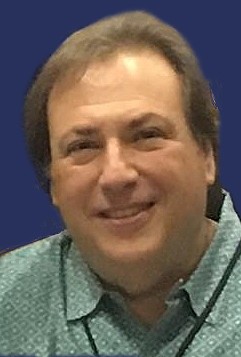New Year’s Resolutions for Musicians
Here are seven ways to improve your chops and expand your musical horizons.
We’ve completed another revolution around the sun, and it’s time to celebrate — but it’s also time to take stock and think about how we can make the coming year even better.
Things like losing a few pounds, developing new work skills, taking that long overdue vacation — those are all pretty standard. For musicians, though, New Year’s resolutions might need to be somewhat more specialized. Here are seven suggestions that can help you improve your chops and expand your musical horizons in the months ahead.
1. Feed Your Creativity
Set a goal of writing some new music every week. This doesn’t have to be a full song — even a simple melody, riff, phrase or beat will do. The idea here is to stimulate the creative area of your brain (until recently, thought to be the right hemisphere, though some recent studies show that the left hemisphere can play a role too), and, honestly, the results don’t matter all that much: for the purposes of this exercise, a bad piece of original music is better than no piece of original music.
Like so many other things in life, this is a case where practice makes perfect. The more music you write, the easier it will become over time. Eventually you’ll find yourself stringing together those basic melodies, riffs, phrases and beats into complete musical compositions. If you’ve got a flair for lyrics (or can partner with someone who does), they can even turn into pop or rock songs that might eventually become hits! (Interested in pursuing your songwriting muse? Check out our blog postings from Grammy-nominated singer/songwriter Shelly Peiken.)
2. Expand Your Repertoire
Learn one new song or composition every ten days. If you’re good at learning by ear (a skill that also gets better with practice), all that’s involved here is finding a song you like and listening to it repeatedly until you can play the chords and melody. If not, instructional YouTube videos, sheet music and/or “fake” books can provide you with the chords and notation to just about every song and composition out there. (Yamaha offer hundreds of sheet music titles, all available for immediate download.)
3. Master Your Instrument
Make a point of tackling a new playing technique every month. This can be as simple as learning new scales or chords, or as complex as developing drumming polyrhythms or learning circular breathing techniques. Instructors can be very helpful in achieving this goal, but there are plenty of online resources to help in that endeavor too, including postings here on the Yamaha blog such as our Well-Rounded Keyboardist series and the many guitar tutorials presented by renowned educator/clinician Robbie Calvo.
4. Record Your Muse
Learn a new recording skill every other month. After all, if you want to put your music out there for the world to hear, you need to be able to record it, and the better it sounds, the more likely you are to find an audience. This can encompass a wide variety of aspects, including:
- A basic understanding of sound, acoustics and microphone design
- Knowing how to set levels correctly and avoid distortion
- Learning the importance of room treatments and proper monitoring
- Trying out different mic placements to see how they affect the sound
- Experimenting with new plug-ins and advanced features offered by your DAW software
- Creating mixes that sound good in all different environments and on different systems
- Understanding the basic principles (and importance) of mastering
You can find lots of great tips about all of the above — and more — in our ongoing series of Recording Basics blog postings.
5. Open Your Ears
Expose yourself to a new genre of music for an extended period of time every few months. This one’s super-easy: all you have to do is listen. But you need to make a conscious decision about what you want to listen to, and you need to listen intently, to try to get “inside” the music, to understand what makes it tick.
You might want to start slowly by sticking to genres similar to the ones you already like — for example, classic rock fans will probably enjoy blues music too. After awhile you can begin to stretch things by experimenting with genres that are significantly different from your personal tastes: If you’re a classical music aficionado, try some hip-hop; if you’re a rap fan, go for some gentle folk or country music. You may not like what you’re hearing, but there’s also the possibility that you will. Either way, you’ll be expanding your musical horizons, which can only help you develop as a musician.
6. Step Outside Your Comfort Zone
Try to learn a new instrument in the coming year. Notice we said “learn,” not “master,” because it’s impossible to master any musical instrument in that short a space of time. (When asked why he still practiced at the age of 90, the legendary cellist Pablo Casals replied, “Because I think I am making progress.”)
So we’re talking about the basics here, but even getting that far will help stimulate your brain and improve your chops on your chosen instrument (as learning sitar did for Beatle lead guitarist George Harrison) … though it’s also entirely possible that you’ll gravitate to the new instrument instead. For example, Tower of Power saxophonist Stephen “Doc” Kupka started on oboe but switched over to baritone sax in his college years because he wanted to play rhythm and blues; similarly, the group’s drummer David Garibaldi initially wanted to play trumpet, but found himself practicing violin instead before discovering the joy of drumming. The alternative instrument you pick should ideally be somewhat similar to what you already know — for example, if you’re a guitarist, try taking up bass, or vice versa — as this will help you make progress more quickly. But if you’re up for a challenge, by all means go for something completely different!
7. Get Critical
Over the course of the year, develop critical listening skills so you can better evaluate your own recordings and those of other musicians. You want to be able to listen like a producer, like an arranger, and like an audio engineer. Some people are born with those skills, but they can be learned, though there are no shortcuts here — you have to put in the time.
Being a critical listener allows you to delve beyond the gut-level reaction you have when you first hear a song and appreciate it intellectually, which can only aid you in your development as a musician and as a composer or songwriter. There’s a reason, after all, why your favorite music is your favorite music … and once you develop these kinds of listening skills you’ll be able to know what that reason is and apply it to your own music-making.
Here’s to a great year ahead!















